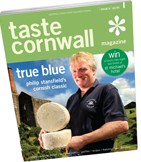
September 29, 2009
Our dogged efforts to grow and distribute our own vegetable crops continue to attract media interest.
Both Camel Community Supported Agriculture and our counterparts at the far end of the county, West Penwith CSA, are featured in the latest edition of Taste Cornwall magazine.
Writer Kevin Gray-Roberts waxes positively lyrical about reaping the rewards of harvesting earthy new potatoes, ripe tomatoes and crisp dewy lettuces.
Community supported agriculture is the perfect antidote to the anonymous consumerism that has overtaken food production and retail in the UK.
A certain section of the food-buying public has become so disenchanted with how the conventional food market operates they are taking direct, affirmative action to re-establish control of what they eat.
The positive spin-offs of this are reduced food miles, packaging and waste, greater stability, security and sustainability for the farms, and community interaction across age and income groups.
Kevin’s article concludes that what we’re doing is superb medication for body and soul. He urges others to follow our example and get stuck in.
Not only will your food be fresher, your fitness, your outlook and your social life will all be infused with a new and vigorous growth.
- Taste Cornwall comes free with the October issue of Inside Cornwall magazine.
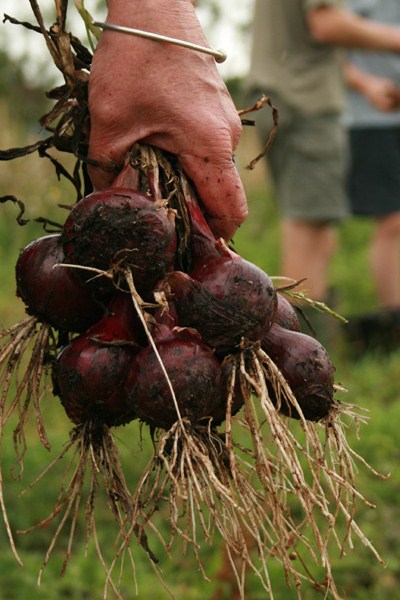
September 24, 2009
Camel Community Supported Agriculture members can expect a top quality variety of fresh, seasonal veg in their boxes this week: –
*red onions (Camel CSA)
*curly parsley (Camel CSA)
*beetroot (Camel CSA)
*bunched carrots (Jeremy Brown)
*salad leaves (Jeremy)
*cucumber (Jeremy)
*potatoes – Marfona variety (Mark Norman)
*leeks (Mark)
cabbage – Sweetheart variety (Rest Harrow Farm, Trebetherick)
Standard / large boxes only: –
*turnips (Mark)
Large boxes only: – *courgettes (Camel CSA), *squash (Jeremy), *chocolate cherry tomatoes (Jeremy)
* = grown to organic principles
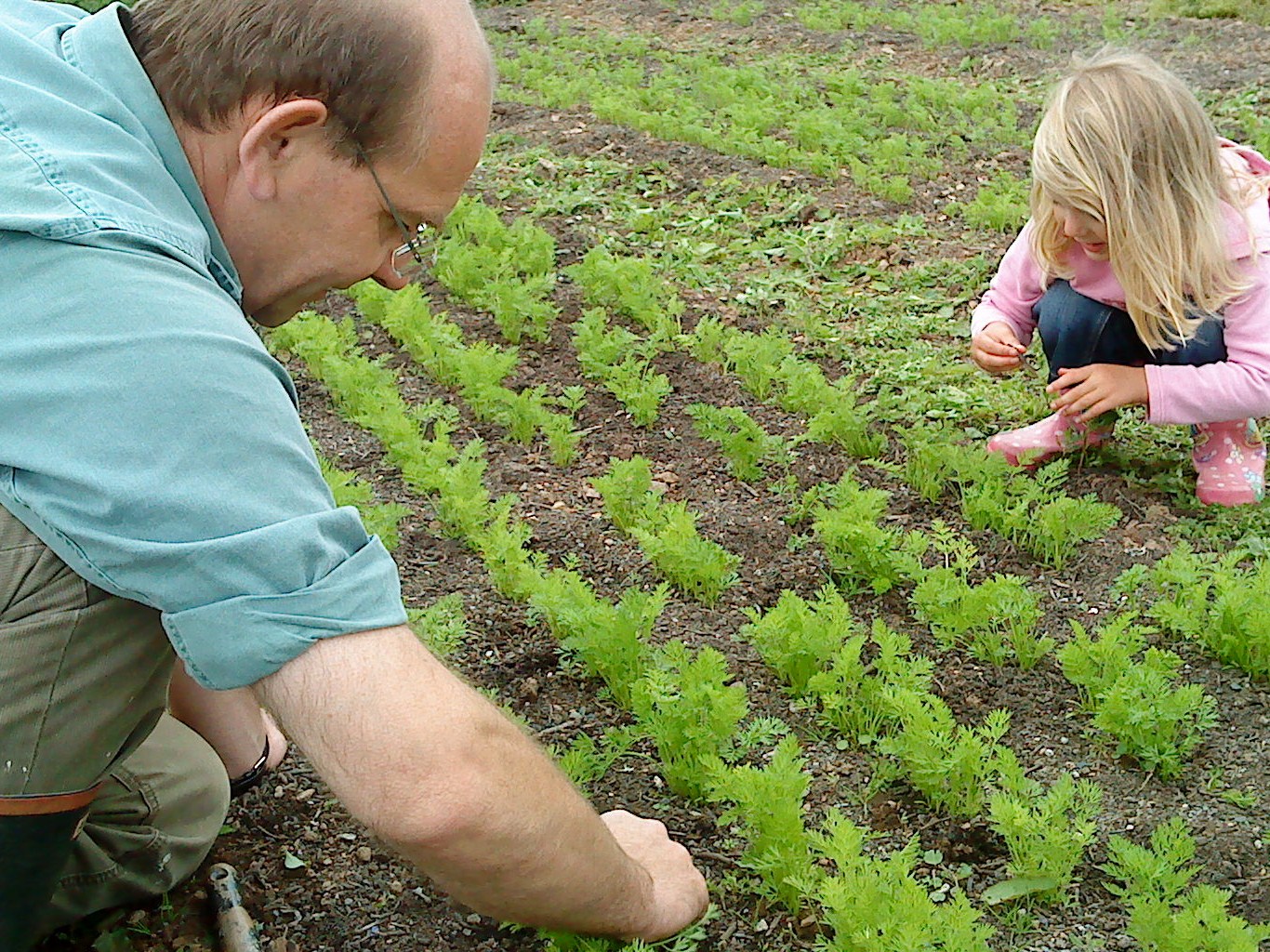
September 22, 2009
We are now very close to submitting our final bids for grant funding for Camel Community Supported Agriculture’s growing-our-own-food project.
We’re seeking financial support from the Lottery Local Food programme and from the East Cornwall Local Action Group, part of the South West Regional Development Agency.
We have a clear idea of the sort of money we require to get the project up and running. For example, in the first year we need: –
- £12,500 for a tractor and its equipment
- £6,600 for polytunnels and a seeding tunnel
- £3,600 for packing and storage sheds
- £2,850 to sink a borehole and install a water management system.
Volunteers will be pleased to learn that we have also budgeted £600 for an upgraded rabbit proof fence.
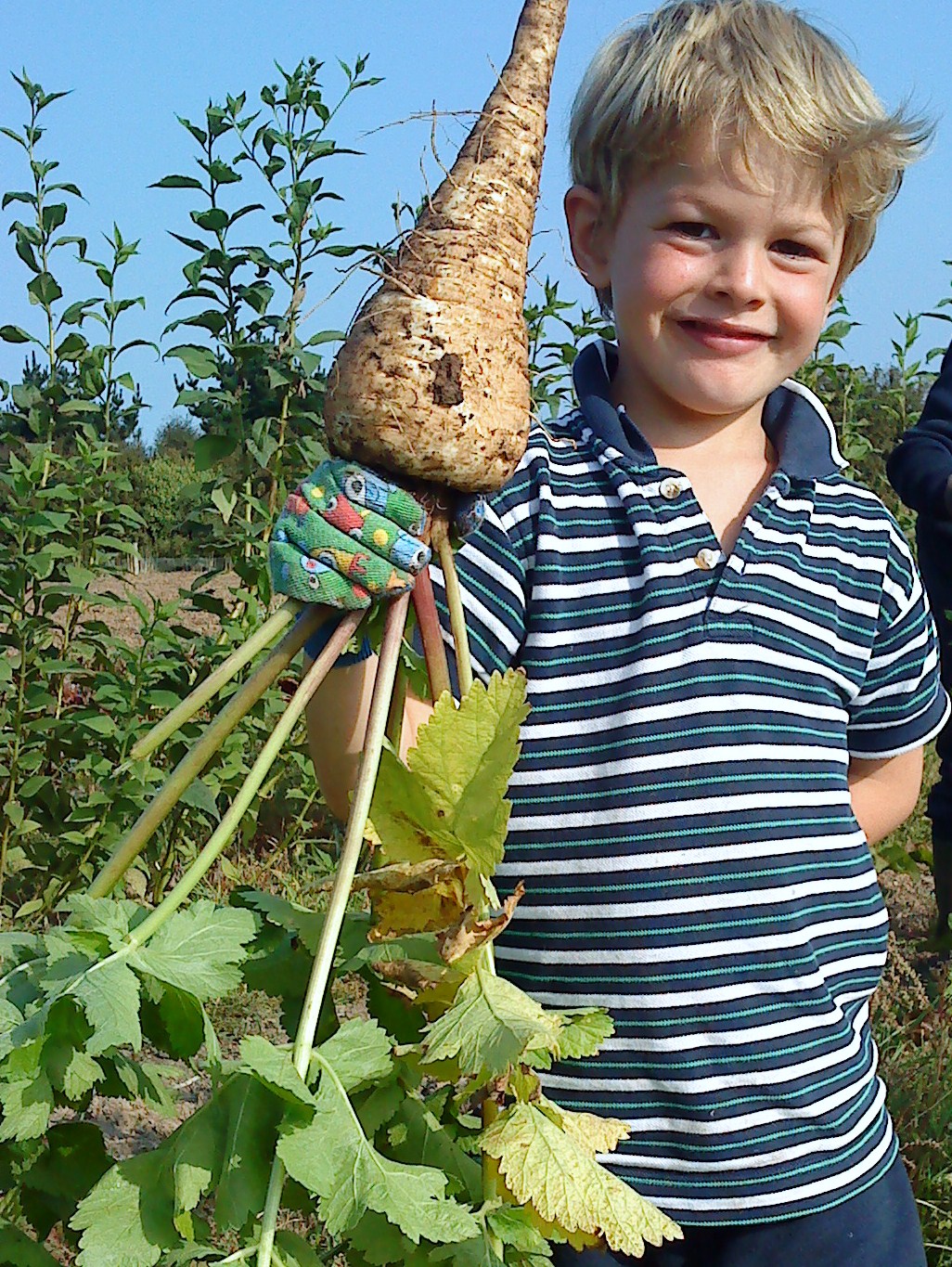
September 18, 2009
Camel Community Supported Agriculture member Gillian recommends this simple seasonal soup.
“I stumbled across this recipe when I was making baby food for my baby daughter six years ago. Frozen in ice cube trays, it was great food for Sophie, and we watered down the puree to make soup for us! Very simple and delicious.
You can eye the ingredients to adjust quantity: hold the roots in your hand and picture how many would go in a bowl!”
Ingredients
parsnips
carrots
butter
salt and pepper
water or stock
Method
1. Peel and slice the parsnips and carrots, and “fat steam” them in a pot or skillet with a lid: i.e. cook them with a generous knob of butter on medium-low heat with the lid on. This will take about 10-15 minutes. Add salt and pepper to taste.
2. When the roots are soft to prick with a fork, spoon them into the blender or a food processor, and add water to cover one half to three quarters. Whizz and test consistency: if it is too thick, add more water or chicken stock if you prefer. Repeat until the consistency is right.
3. Return to pot, heat through, and serve with crusty bread and cheese to share for lunch!
“A swirl of cream and snipped coriander or parsley makes a pretty garnish for this flavourful soup.”
Click here to see all the recipes that Camel CSA members have recommended so far.
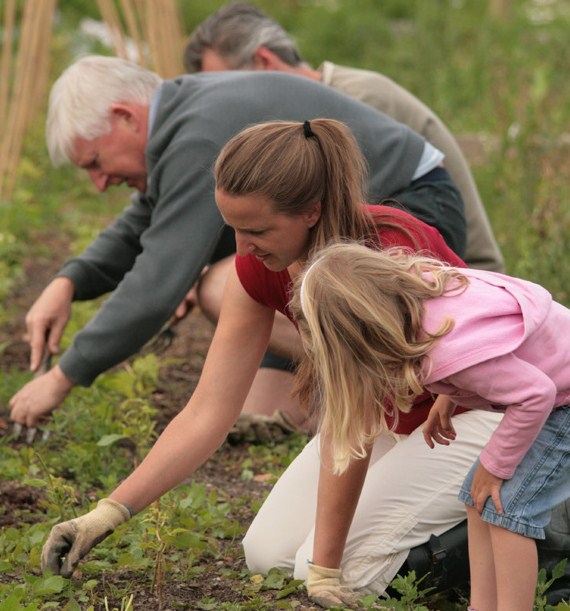
September 17, 2009
We’ve got more of those delicious parsnips in our share of the vegetables. They were sown and lovingly cultivated by Camel Community Supported Agriculture’s volunteer growing team. Also available from our own plot at St Kew Highway this week are curly parsley, onions, Swiss chard and beetroot.
The small veg boxes contain:
*parsnips (Camel CSA)
*onions (Camel CSA)
*potatoes (Jeremy Brown)
*curly parsley (Camel CSA)
*pumpkin (Mark Norman)
*tomatoes (Jeremy)
swede (Rest Harrow Farm)
kale (Rest Harrow Farm, Trebetherick)
broccoli (St Merryn)
The standard boxes contain all the above, plus:
*Swiss chard (Camel CSA)
*beetroot (Camel CSA)
*courgettes (Mark)
* = grown to organic principles
Uncomplaining
We extend our best wishes to Trish, Camel CSA’s picking and packing supremo, who has recently had an operation. We hope she enjoys a speedy recovery and look forward to working again with her soon.
Robert, who’s responsible for the Friday rota, is standing in for her at the moment. Over the last fortnight he’s been leading a team that’s included Charlotte, Gillian, Henrietta, Marianne, Mike H and Penny.
Mike H and Penny have spent long hours uncomplainingly digging up row after row of potatoes. It was a disappointingly small yield so they’ve had to put a disproportionate amount of effort into this back-breaking task. This area is now being sown with a crop of green manure to boost soil fertility.
If anyone else is willing to volunteer to pick and pack on Friday mornings, please get in touch. We could do with a couple more people on the rota. You won’t be expected to turn up every week.
Oh – and don’t worry, no more potatoes need to be dug until next season!

September 16, 2009
I’m talking about the rabbits.
They’re devastating our brassicas – the 1,000+ donated by Fentongollan Farm that Camel CSA volunteers planted in monsoon conditions in July.
They’ve hopped along the protective fleece and created several neat lines of holes by boring down vertically into the centre of nearly every plant. How do they do it? Have they got sat nav or is it simply down to their whiffly noses?
The rodents seem to like munching red and green cabbage, kale (both kinds) and purple sprouting broccoli the best. But, just like humans, they don’t seem to be quite so keen on the Brussels sprouts.
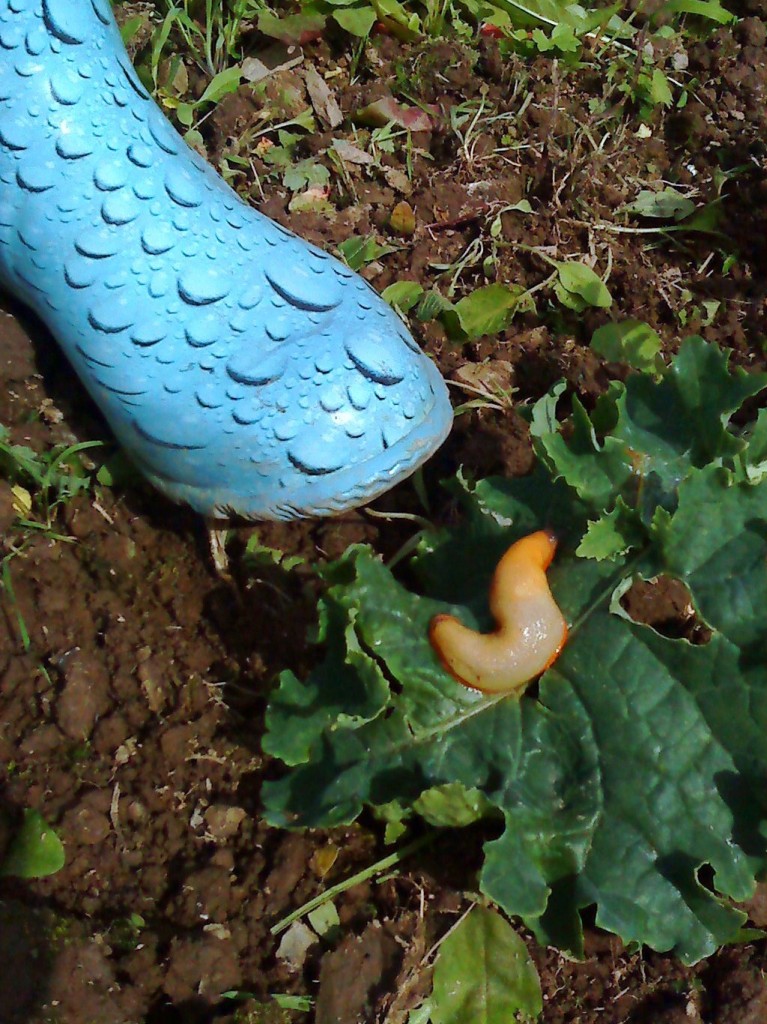
Slug attack
Those famous Cornish slugs with the orange-frilled stomachs have also been having a go. There’s been quite a bit of joking about the best way to deal with them. Slug stir-fry, anyone?
We’ve spent the last two Sundays hand-weeding what’s left of the brassica plants, in the hopes that they will recover from these predatory attacks.
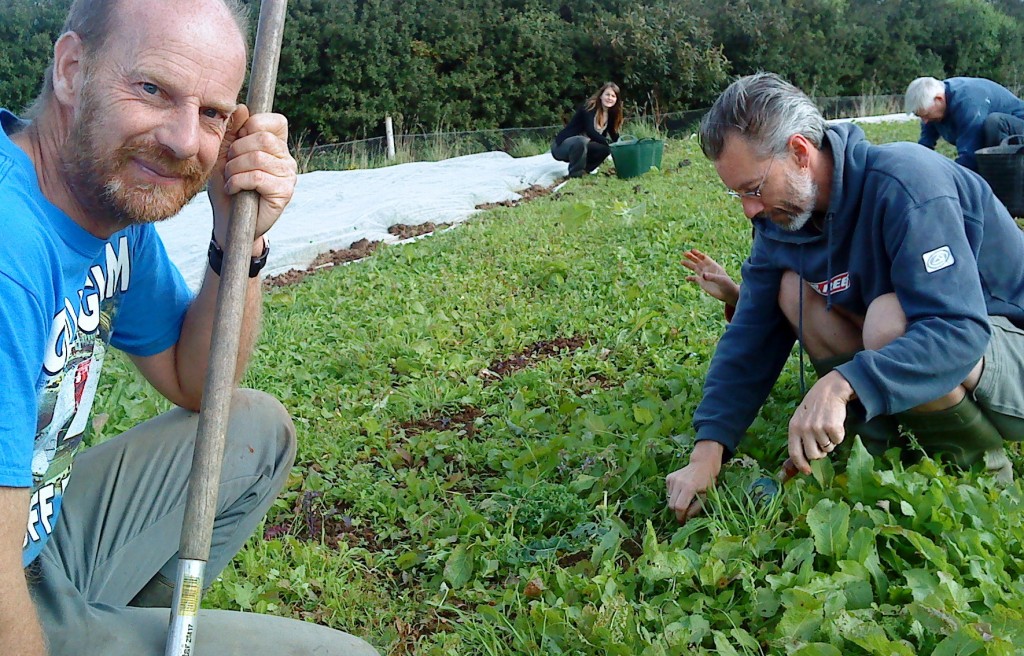
Many thanks to our stalwart volunteers – expert growing team members Jane, Jeremy and Mark N, aided by 10-year-old Callum, Cath, Charlotte, Danny, Jenny (14), Keira (3), Kitty, Mark M, Mike H and Mike S in week one. And thanks last week to experts Jane and Jeremy as well as Charlotte, Dan, Kate, Kitty, Marianne, Mike S and seven-week-old baby Hollie, who slept through it all.
Provided we’re successful in our funding bids, we’ll be able to invest in some strong predator-proof fencing and netting in the near future. But in the meantime, please do tell us. Should we shoot those pesky rabbits – or what?
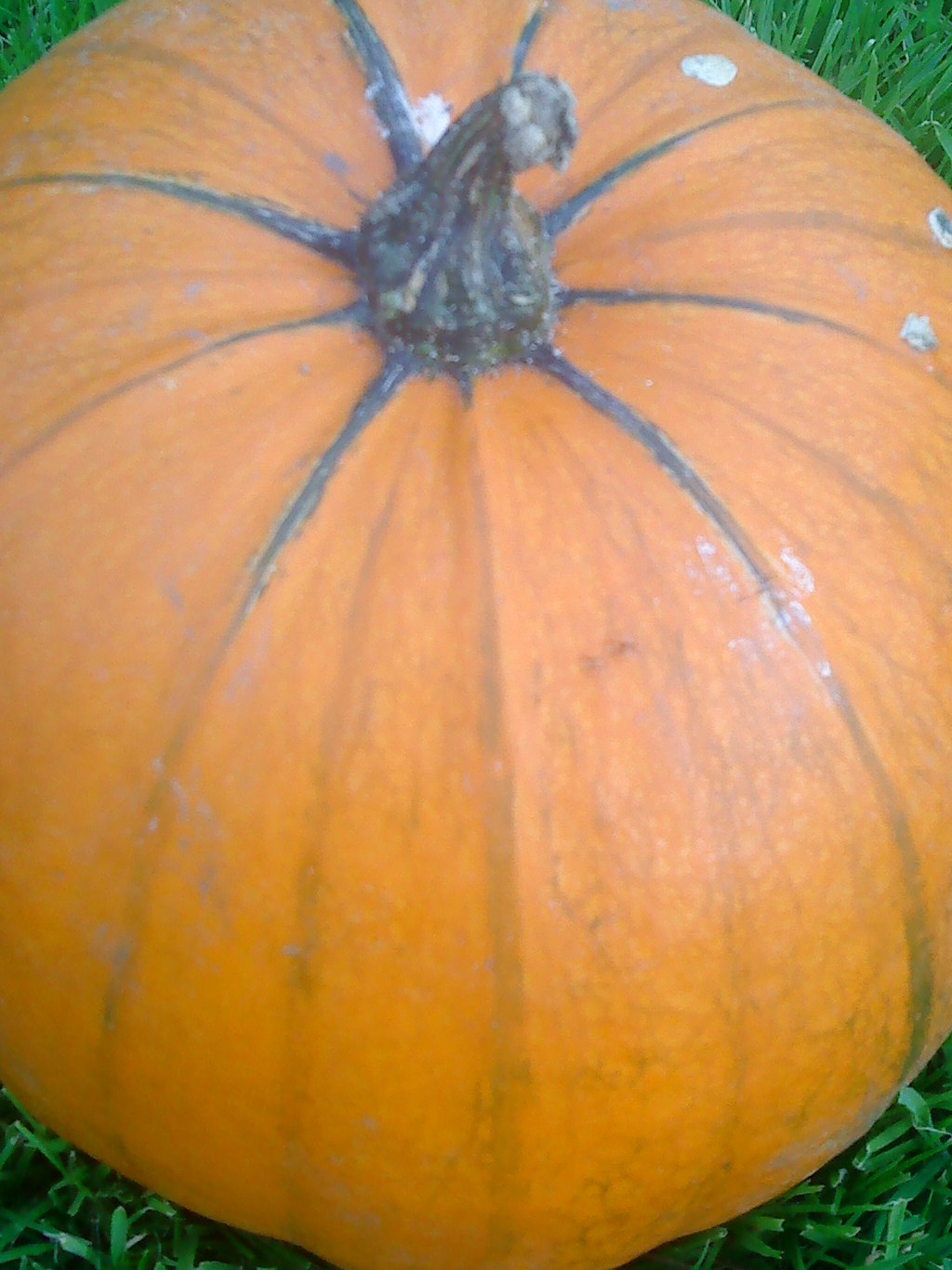
September 15, 2009
Holiday nightmare or domestic dream? Frances is back home after a visit to her parents, who are enthusiastic members of Camel Community Supported Agriculture’s growing-our-own-food project…
“Who’d have thought I’d spend my first morning visiting my parents helping Mum make three lots of soup, the easiest and quickest way to make sure all the vegetables from the box got used.
“Dad incidentally was out of the way, sorry, too busy up at the farm helping out with the other volunteers.
“My favourite soup was the roast tomato and basil (see below), as the tomatoes actually tasted like tomatoes unlike the ones you get from the supermarket in Newcastle!
“The fun didn’t stop there, with another vegetable box arriving towards the end of my visit. This box contained a wonderfully orange pumpkin which we roasted to make a pumpkin and sage risotto with blue cheese.
“I made up the recipe, simply adding the roasted pumpkin to a basic risotto, adding chopped fresh sage leaves to the stock and cubes of blue cheese on top of the risotto at the end.
“Although the pumpkin ended up being a little bit watery (perhaps we should have stuck to making soup!) the risotto turned out to be very good energy food for dancing the night away at the barn dance in St Mabyn that evening which was a lovely, if not exhausting end to my Cornwall visit.”
Roast tomato and basil soup Ⓥ (adapted from the Good Housekeeping Cookery Book)
Preparation and cooking time: 40 minutes. Serves 4
Ingredients
2 lbs fresh ripe tomatoes
1 onion
1 medium potato
1 stick of celery
1 carrot
2 tablespoons olive oil
1 litre of vegetable stock
1 tablespoon tomato puree
1 bunch of basil
Method
Halve tomatoes and place in baking tray. Sprinkle with oil and a few basil leaves. Cook in a hot oven for 30 minutes. Chop onion, carrot, potato and celery finely and sautee gently in oil in a large pan for 10 minutes. Add stock, salt and pepper and simmer for 10 minutes. When tomatoes roasted, remove skins and add to pan. Chop stems of basil and half the leaves and add to the mix with tomato paste. Simmer for a further 5 minutes. Puree in a blender. Serve with a garnish of basil leaves.
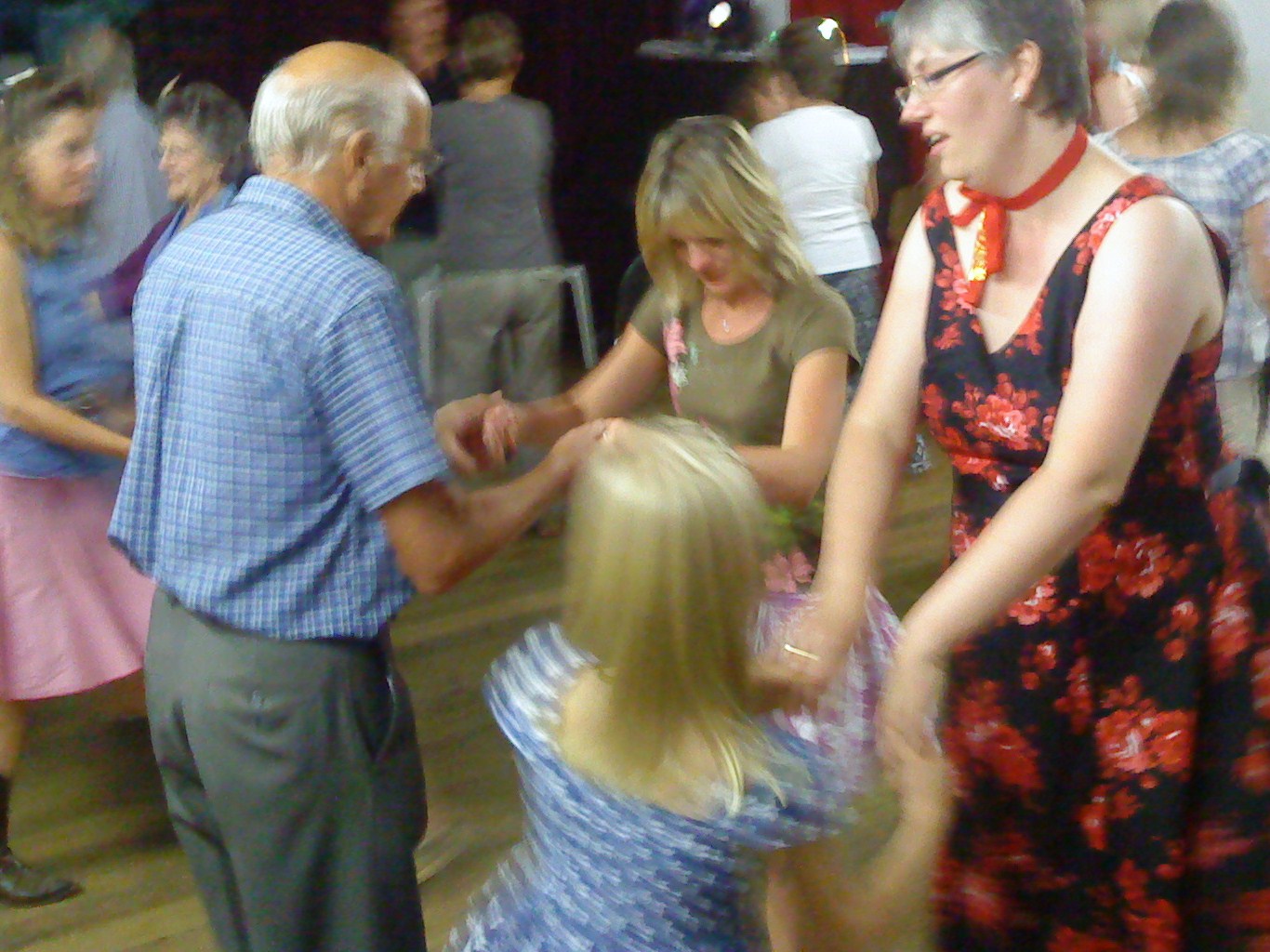
Around 40 enthusiasts aged from eight to 80 lined up for Camel Community Supported Agriculture’s barn dance in St Mabyn village hall.
We shuffled, swung and dosey doed under the expert tutelage of renowned Cornish caller Howard Burrows.
The fun event, organised by demon-dancing fellow members Mike and Yvonne Haywood, raised £55 for Camel CSA funds.
Thank you both!
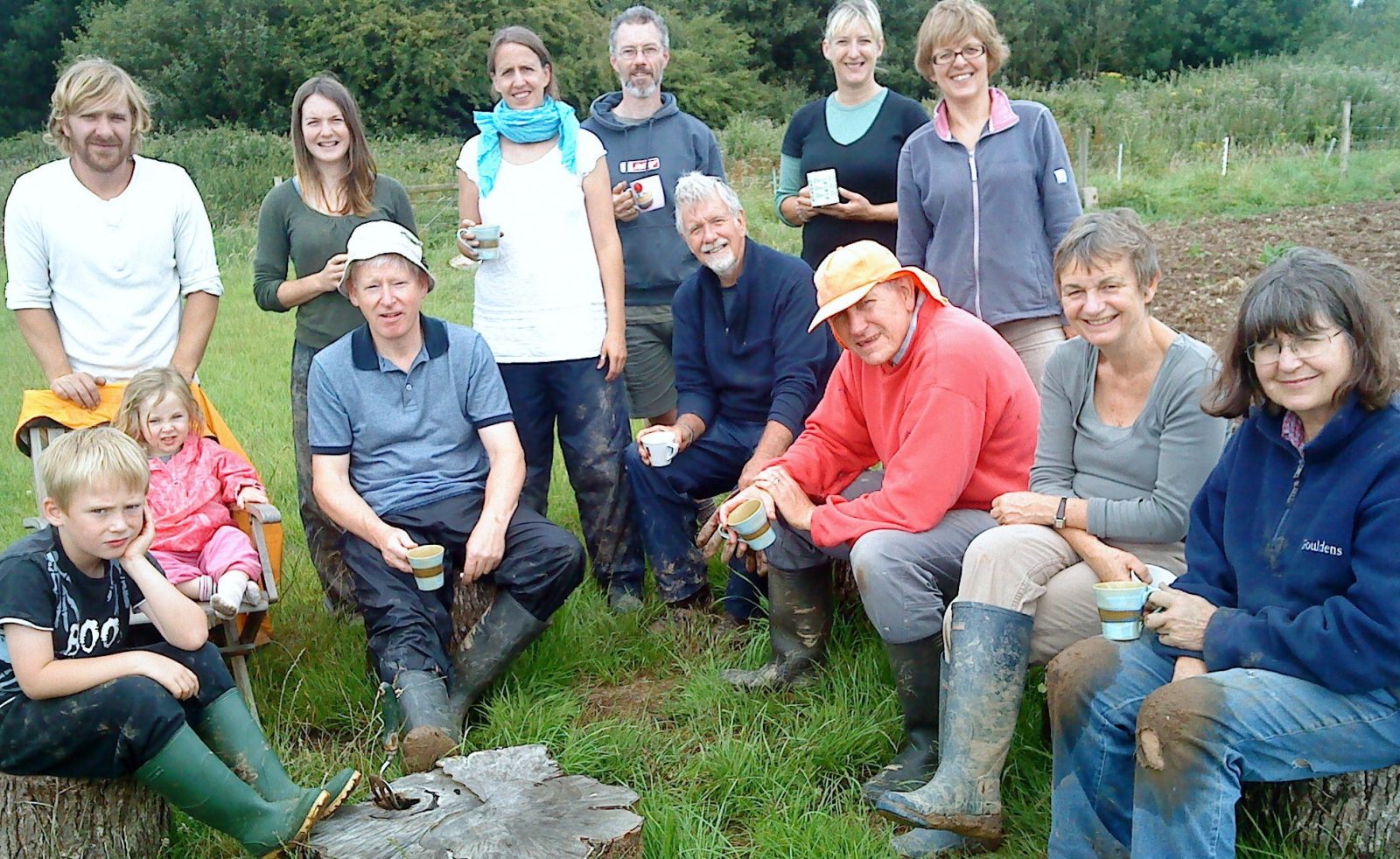
September 11, 2009
Camel Community Supported Agriculture has been chosen to host a new type of training event being organised by the Soil Association.
A total of 23 grow-your-own-food enthusiasts in the south-west, from Land’s End to Totnes, are taking part. It’s proved so popular that more than 10 would-be participants have had to be turned away.
The horticultural mentoring event for existing and prospective CSA groups and growers in the south west is on Monday 14 September at our site at St Kew Highway behind St Kew Harvest Farm Shop.
It will give us an opportunity to consider soil fertility, crop planning and other important aspects of community supported agriculture. It’ll also help us build all-important networks with other growing groups.

Advice
The event’s being organised by Ben Raskin, the Soil Association’s learning manager and horticultural advisor, with the financial backing of the Making Local Food Work project. Ben says:
“The idea is to put growing groups with similar aims into mentoring groups where they can get help and advice.
“There’s been a massive response to these mentoring events from Cornwall and Gloucestershire in particular, which is fantastic. We’ve had to turn people away from next week’s session at St Kew Highway and there is a waiting list of 10.
Cornwall is already playing a leading role in the Making Local Food Work programme led by the Plunkett Foundation. As Jan Trefusis of the foundation says in a recent magazine article:
“Cornwall really is the star of this programme, with a high proportion of our uptake for the project coming from across the region.”
Tim Deane from Northwood Farm near Exeter in Devon, who founded the UK’s first organised vegetable box scheme, will share 30 years’ experience of crop planning, labour and machinery needs at the event.

Dedicated
Camel Community Supported Agriculture’s own team of expert growers – Jeremy Brown, Jane Mellowship and Mark Norman – will describe the ups and down of the initial six months of our own local food project.
The initiative to grow our own food and to share the risks and rewards would never have got off the ground without their combined skills and dedication. They’ve willingly devoted many hours of unpaid work to what’s often been an uphill task.
Jeremy, Jane and Mark have been brilliant; there’s no other way of putting it. Camel CSA members owe them a big debt. We cannot thank them enough.
- See and hear what our expert growers have to say on Camel CSA’s latest video – Our first harvest
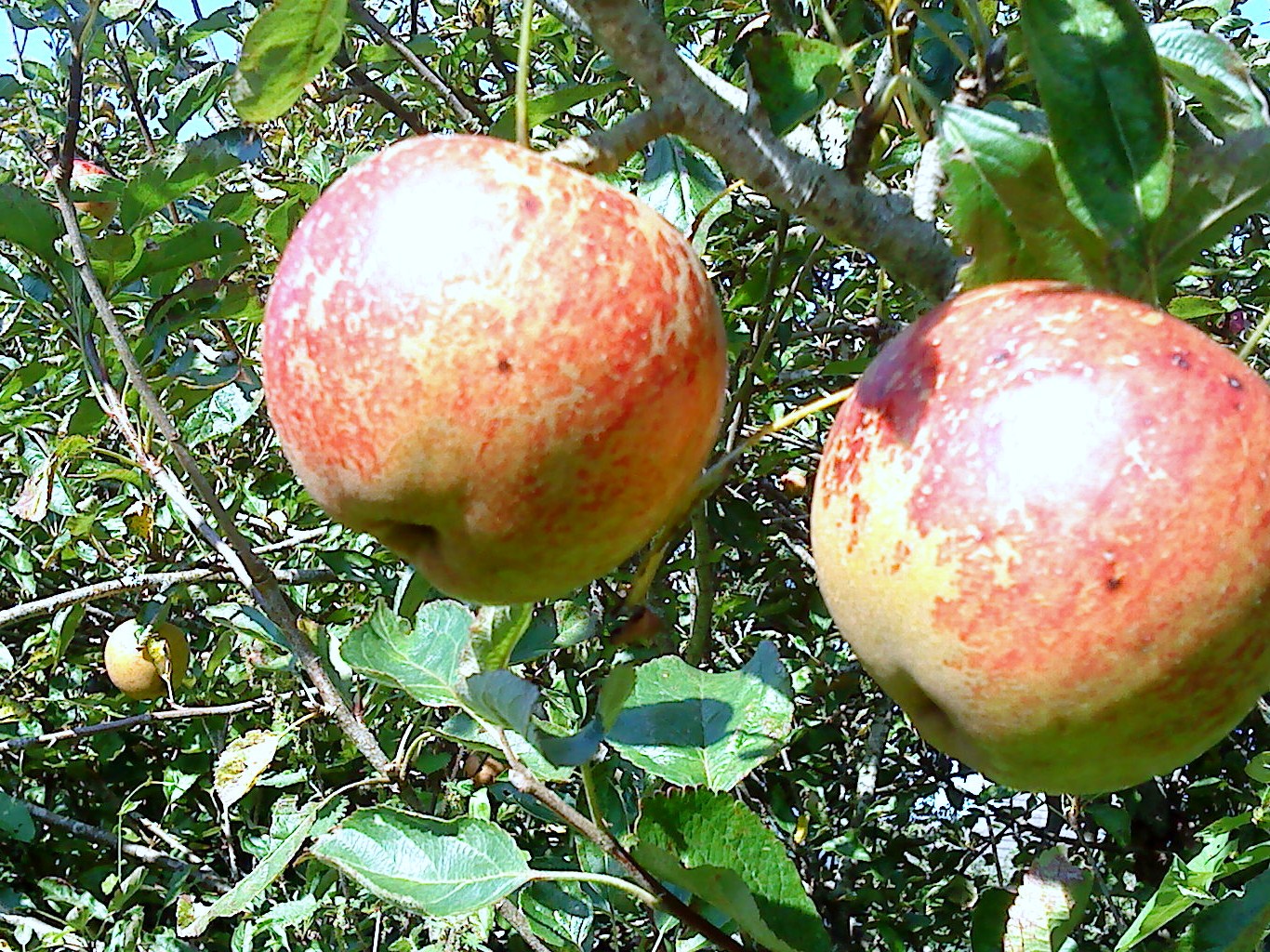
This week’s seasonal recipe comes from 14-year-old Jenny Simmons, our Duke of Edinburgh’s award volunteer. She often cooks it for her family. It can be found in Joy May’s Vegetarian nosh 4 students.
Preparation time: 15 minutes
Cooking time: about 25 minutes
Ingredients
1 tablespoon oil
1 onion, chopped
1 butternut squash – diced
4 large potatoes – diced
2 eating apples, cored and chopped into chunks
1 dessertspoon curry paste
2 mugs water
1 vegetable stock cube
2 tbsp raisins
Naan bread, rice and yogurt to serve
Method
1. Fry onion, squash and potatoes in the oil for 5 mins until they begin to brown.
2. Add the apple, water, stock cube, raisins and curry paste. Bring to the boil. Turn down the heat, put the lid on the pan and simmer for 15 – 20 mins until veg are cooked.
Notes
Jenny says:
“This is double the quantities in the cookbook. We like to give it a bit of a mush at the end till we get the texture we like.”
Amounts may have to be adjusted depending on the size of the squash or pumpkin!
Click here to see all the recipes that Camel CSA members have recommended so far.


